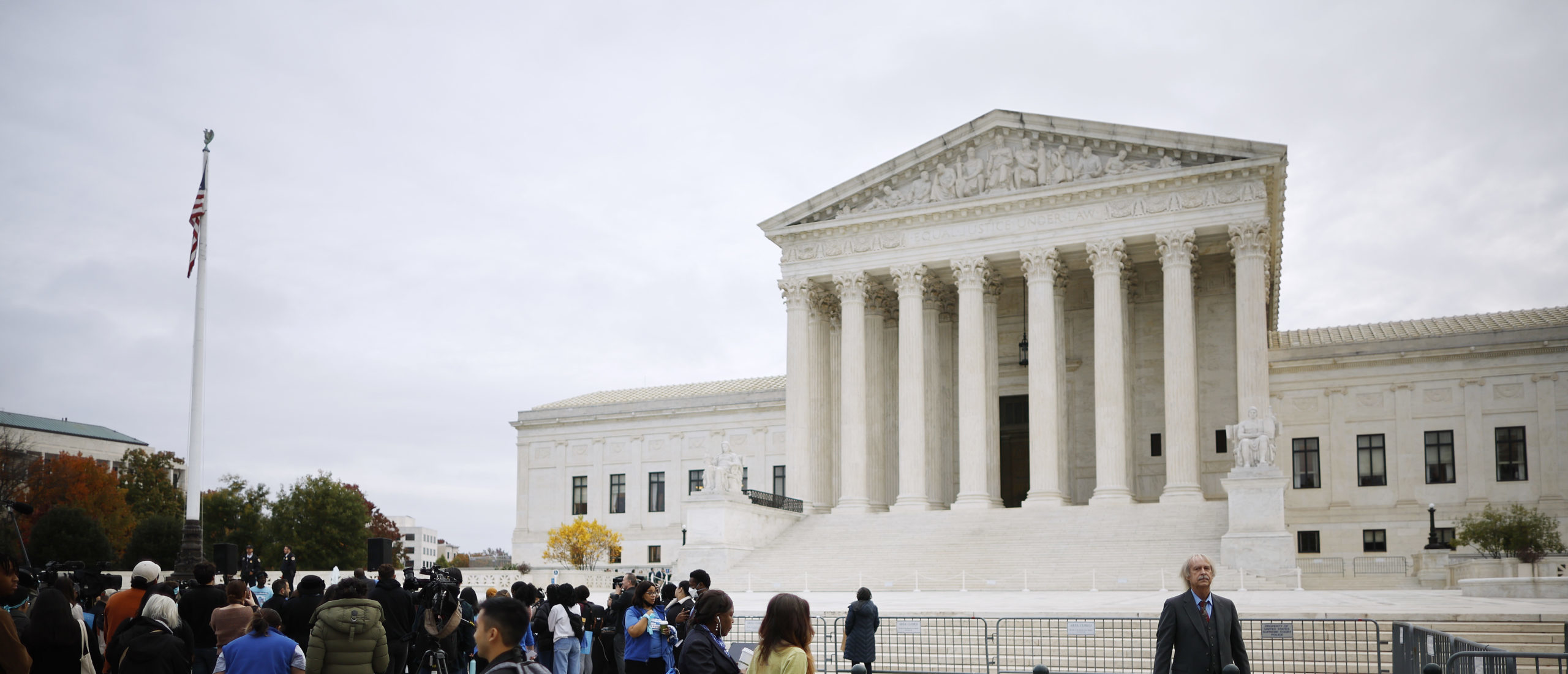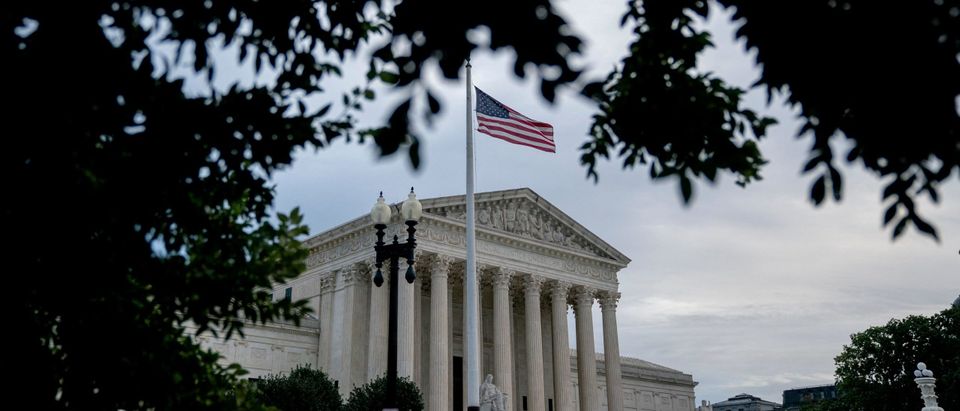- The Supreme Court has 10 cases remaining on its 2022-2023 docket to release this week, including major opinions on affirmative action, religious rights and President Joe Biden’s student loan forgiveness plan.
- Justices have already issued rulings on major Indian law cases, struck down Alabama’s congressional district map under the Voting Rights Act and limited the Environmental Protection Agency’s authority to regulate under the Clean Water Act.
- Tuesday is the next day the Supreme Court is scheduled to release opinions.
The Supreme Court is slated to release decisions for the 10 cases remaining on its 2022-2023 term docket this week, which will include major rulings on affirmative action and election law.
Justices have already issued rulings on major Indian law cases, struck down Alabama’s congressional district map under the Voting Rights Act and limited the Environmental Protection Agency’s authority to regulate under the Clean Water Act. But the most highly anticipated cases of the term—including ones about religious rights, affirmative action and President Joe Biden’s student loan forgiveness plan—are still to come.
Religious Accommodations
A former postal worker’s right to a religious accommodation is under consideration by the Supreme Court in Groff v. DeJoy.
Gerald Groff sued the U.S. Postal Service (USPS) in 2019 after it failed to exempt him from working on Sundays, which he argues is required under Title VII of the Civil Rights Act of 1964 and the Equal Employment Opportunity Act of 1972. A ruling in favor of Groff could expand religious rights in the workplace and unravel the Supreme Court’s 1977 decision in Trans World Airlines v. Hardison — which found that protections for religious employees could be limited when the accommodation imposes more than a trivial burden on the employer and many deemed was bad precedent.
Biden’s Student Loan Forgiveness Plan
Department of Education v. Brown and Biden v. Nebraska, lawsuits brought by individual loan holders and six states, respectively, challenge Biden’s plan to grant student loan forgiveness for nearly 40 million Americans.
Biden announced his plan to cancel up to $10,000 in student loan debt for non-Pell Grant recipients and up to $20,000 for Pell Grant recipients under the 2003 Health and Economic Recovery Omnibus Emergency Solutions (HEROES) Act, which allows the secretary of education to “waive or modify” provisions of student financial assistance programs during a national emergency, in August 2022. The justices seemed skeptical that Congress intended the emergency power to extend to total debt cancellation during oral arguments for the case in February. (RELATED: Supreme Court Sides With Biden Admin On Immigration Enforcement Plan)
Election Law
The Supreme Court is reviewing independent state legislature theory, the idea that state legislatures have full authority to administer federal elections without interference from the courts, in Moore v. Harper — a case that stems from the North Carolina Supreme Court’s decision to toss a congressional map drawn by the Republican-led legislature after the 2020 census.
The Biden administration has argued that the justices should dismiss the case as moot after the North Carolina Supreme Court reversed its ruling on April 28. The North Carolina Supreme Court said it lacked authority to review the map under the state constitution.
Affirmative Action
The Supreme Court heard oral arguments for two lawsuits brought by Students for Fair Admission (SFFA) against Harvard University and the University of North Carolina (UNC) challenging race-based university admissions policies in October. SFFA alleges the universities violated Title VI of the Civil Rights Act, which prohibits discrimination on the basis of race, color or national origin.
Universities are anticipating a decision striking down affirmative action by strategizing ways to maintain racial quotas without explicit racial preferences, such as by eliminating standardized testing requirements.

WASHINGTON, DC – OCTOBER 31: A lone opponent to affirmative action in higher education stands next to a rally of proponents in front of the U.S. Supreme Court before oral arguments in Students for Fair Admissions v. President and Fellows of Harvard College and Students for Fair Admissions v. University of North Carolina on October 31, 2022 in Washington, DC. (Photo by Chip Somodevilla/Getty Images)
LGBT Issues, Religious Rights And Compelled Speech
The Supreme Court heard web designer Lorie Smith’s challenge to the Colorado Anti-Discrimination Act (CADA) in December. Under the law, Smith says she cannot create wedding websites that express her deeply held belief that marriage is between one man and one woman without also creating websites for same-sex marriages.
Colorado’s law is one of many across the country that prevent public accommodations from restricting services based on sexual orientation, which multiple religious small business owners like Smith have challenged in other states on the same compelled speech grounds. Colorado says its law merely prevents Smith from refusing to serve gay couples, arguing any effect on Smith’s First Amendment rights were “incidental.”
‘True Threats’ And The First Amendment
The Supreme Court was asked to consider in Counterman v. Colorado whether a speaker’s intent should be considered when they are accused of making a “true threat,” which are not protected under the First Amendment. Billy Raymond Counterman, who was handed a four-and-a-half year prison sentence for stalking after he repeatedly sent a local musician Facebook messages she found threatening, argues his words were not intended as threats.
A variety of organizations, including religious freedom, child advocacy and civil liberties groups, filed briefs raising concern that ignoring a speaker’s intent and basing prosecution on how a “rational person” interprets the words could chill different types of speech from religious expression to online jokes.
Other Cases
Besides the blockbuster rulings, a couple small cases remain. The Supreme Court will also rule this week on Abitron Austria GmbH v. Hetronic International, Inc., a case considering whether a federal trademark law applies when the mark is used outside the U.S., and Mallory v. Norfolk Southern Railway Co., which is a challenge to a Pennsylvania law that requires companies registered to do business in the state to consent to being sued in Pennsylvania courts, even if they don’t do the majority of their business there or are headquartered in another state.
The Supreme Court announced that Tuesday will be the next opinion day.
All content created by the Daily Caller News Foundation, an independent and nonpartisan newswire service, is available without charge to any legitimate news publisher that can provide a large audience. All republished articles must include our logo, our reporter’s byline and their DCNF affiliation. For any questions about our guidelines or partnering with us, please contact licensing@dailycallernewsfoundation.org.


